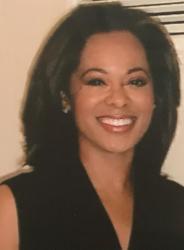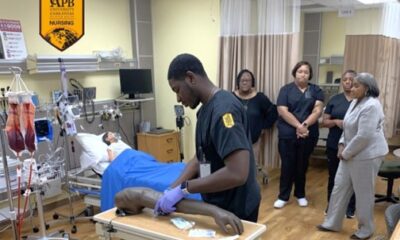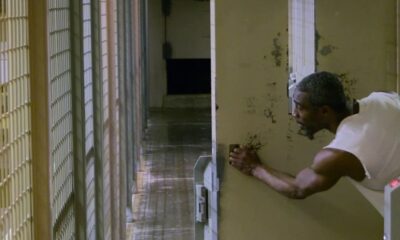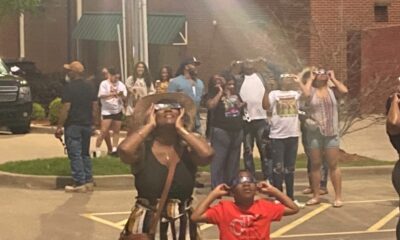News
How Police Brutality Impacts Black Americans’ Everyday Behavior
(Video Source: CNN)
City leaders in Chicago are preparing for civil unrest in response to the police killing of 18-year-old Paul O’Neal and the release of the police video. Police say the officer who pulled the trigger violated department policy, but the bodycam video does not show the actual shooting. The officer shot O’Neal, who was unarmed, in the back.
The O’Neal family attorney, Michael Oppenheimer, says the police acted as “judge, jury, and executioner.” In the video, the officer is heard saying the shooting will get him a “30-day suspension.”
Dr. Ray Winbush, Chairman of the Urban Studies Department at Morgan State, explains, “Police are saying, “I can kill Black people…a Sandra Bland or a Michael Brown…and get away with it.” And when you know you can do that and get away with it, you are a walking danger.”
Several hundred miles away in St. Louis Michael Brown’s father is busy this weekend making sure the activities organized in his son’s honor are handled with respect and care. Two years ago a Ferguson police officer shot and killed Brown on a sidewalk in Ferguson, Missouri. Witnesses say the unarmed teenager held up his hands in surrender as the officer fired shots, stealing his life. The killing touched off days of social unrest in Ferguson and ignited a sustained conversation about police brutality in this country.
Each police-involved shooting, from Brown to Eric Garner to Tamir Rice to Walter Scott to Alton Sterling to Philando Castile to Korryn Gaines, pushes Black Americans into a state of outrage and vigilance.
“In the system of white supremacy, Black people are constantly overcompensating,” says Winbush. “And, we begin to do it almost subconsciously in order to survive the system. We know there are ways we are supposed to act when we going shopping to keep from being watched…when our children are in a predominantly white school. We are constantly overcompensating and that’s the tragedy. And, it’s nothing we can do anything about.”
One of the most recent police shootings that claimed headlines involved 23-year-old Korryn Gaines who was shot and killed by Baltimore police after a standoff set in motion when they served a search warrant related to a traffic stop in March. Gaines allegedly fired at police during the standoff negotiations, and they returned fatal fire while her five-year-old son was in the apartment with her.
“As a psychologist, I look at things from several perspectives,” Winbush states. “I would not put my kids in danger. But, it does not merit three months later, her being killed in front of her kid. If there was a crime, did it fit the punishment? No. This was not her fault.”
There have been several manifestations of frustration in the Black community in the two years since police killed Michael Brown. The marches and protests are visible. But, many Black Americans are looking for ways to empower Black businesses, schools, and neighborhoods. Yet, for all the efforts to avoid conflict and create autonomy, the onus for change may be beyond the reach of African Americans.
Winbush cites teachings of the late Dr. Frances Cress Welsing, physician and psychologist, who lectured frequently and told audiences “most white people are terrified of Black people, and we don’t want to believe that.”
At 6’5” Winbush is aware of his height and its potential to intimidate. “If I have to go out late to pick up a loaf of bread, as a Black male…I don’t put my hands in my pockets. I won’t wear a hoodie. I look harmless,” he says. “As Black people, we’d better be aware constantly in a system of white supremacy that can snuff out our lives at any moment. And, we need to tell our children.”
It is a chilling pronouncement, but one Paul O’Neal’s family, Michael Brown’s and far too many others know as fact.

-

 Black History5 months ago
Black History5 months agoThe untold story of a Black woman who founded an Alabama hospital during Jim Crow
-
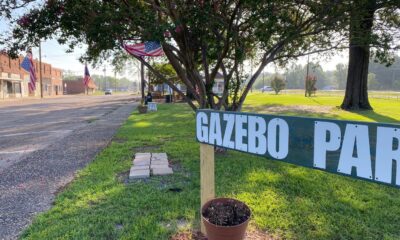
 Featured8 months ago
Featured8 months ago‘No Closure’ In Town Where Five Black Residents Were Either Murdered, Died Suspiciously Or Are Missing
-
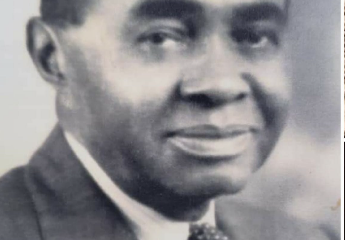
 Black History9 months ago
Black History9 months agoBlack History Lost and Found: New Research Pieces Together the Life of Prominent Texas Surgeon and Activist
-

 Featured9 months ago
Featured9 months agoFounder of “The Folding Chair” Podcast Calls Montgomery’s Brawl ‘Karma’
-
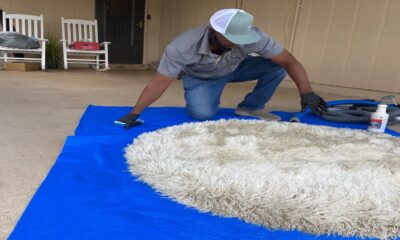
 Featured8 months ago
Featured8 months agoThousands ‘Live Their Dream’ During National Black Business Month
-

 Featured10 months ago
Featured10 months agoJuneteenth And ‘246 Years Of Free Labor’ Are Key To Conversations About Reparations

